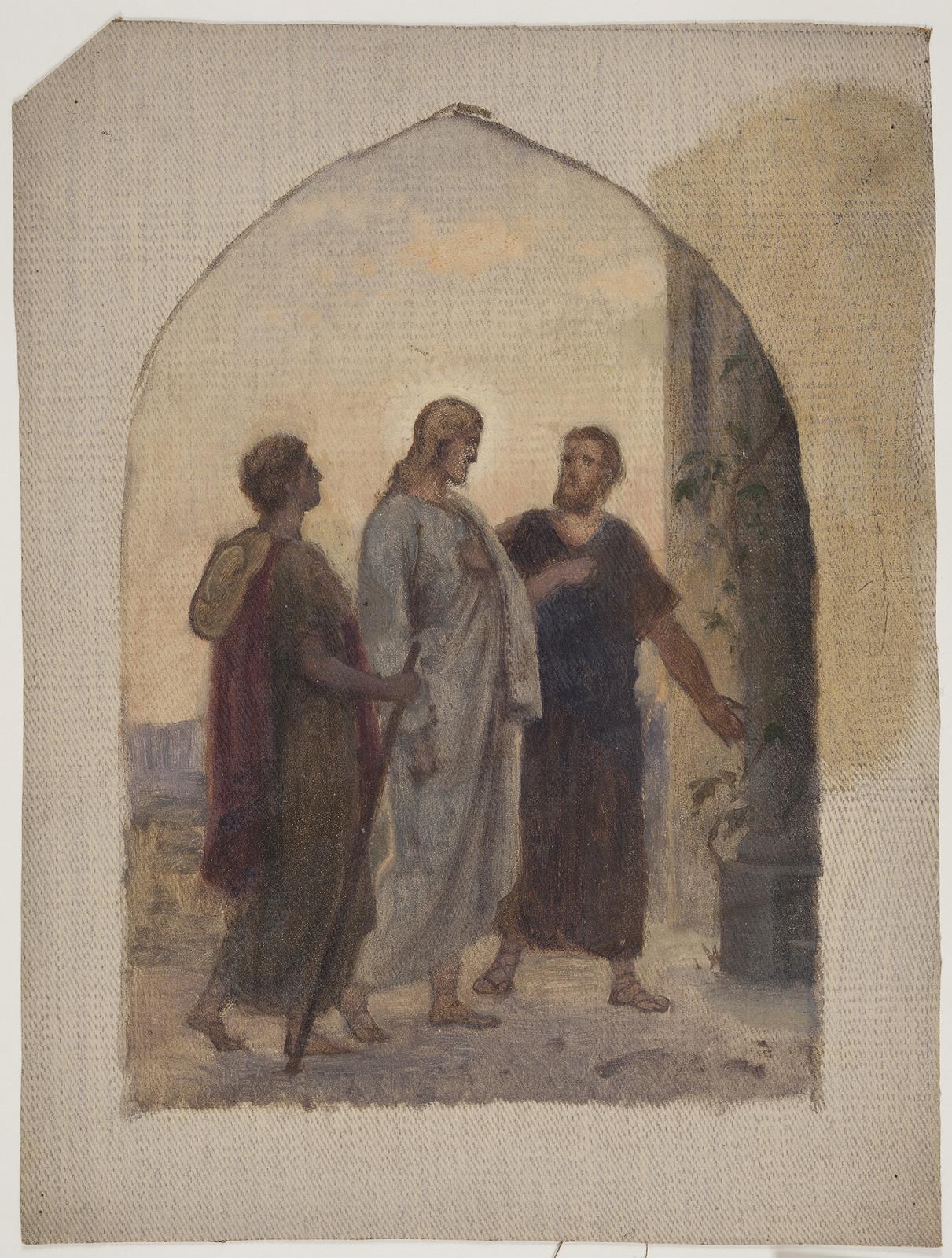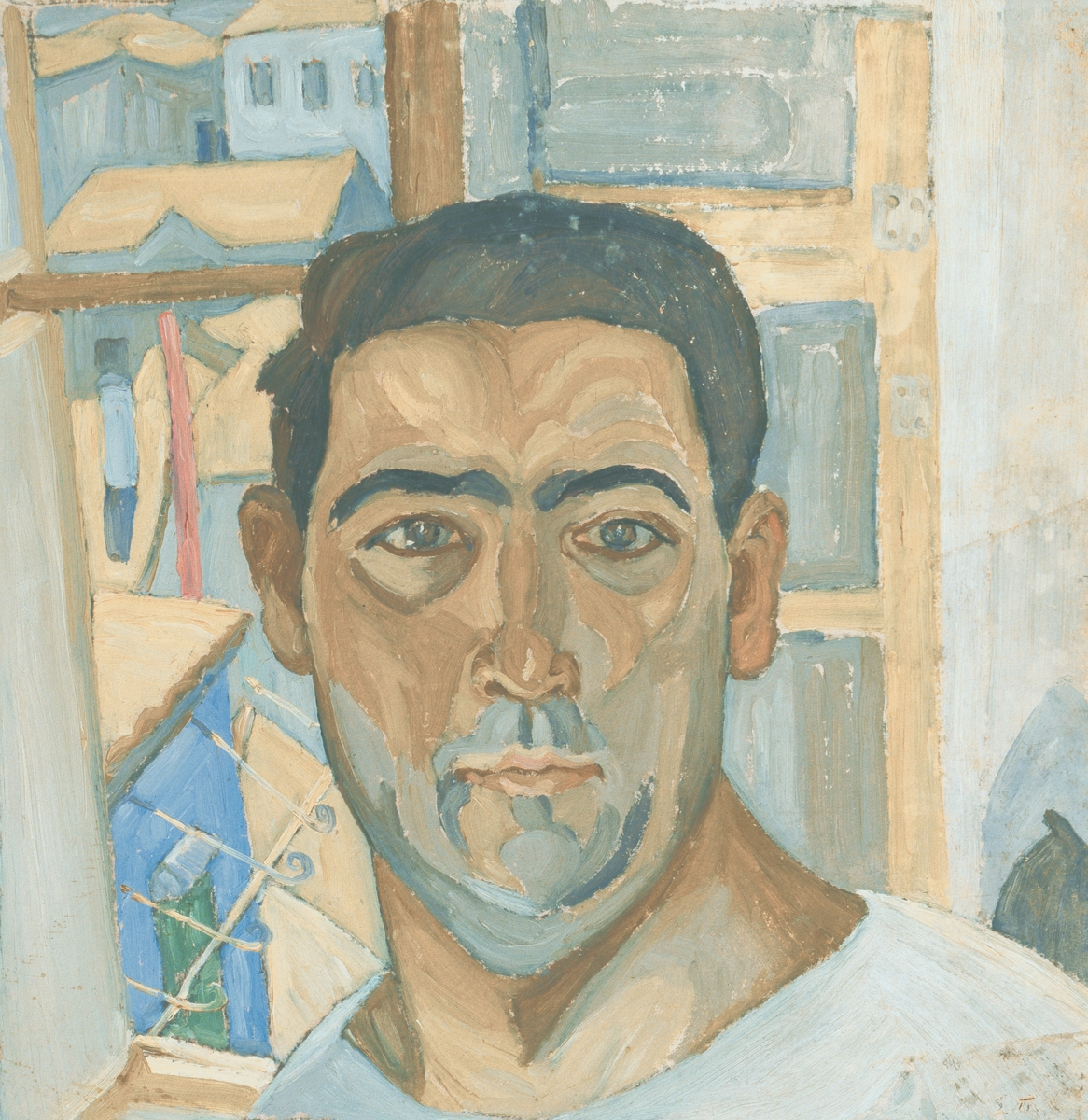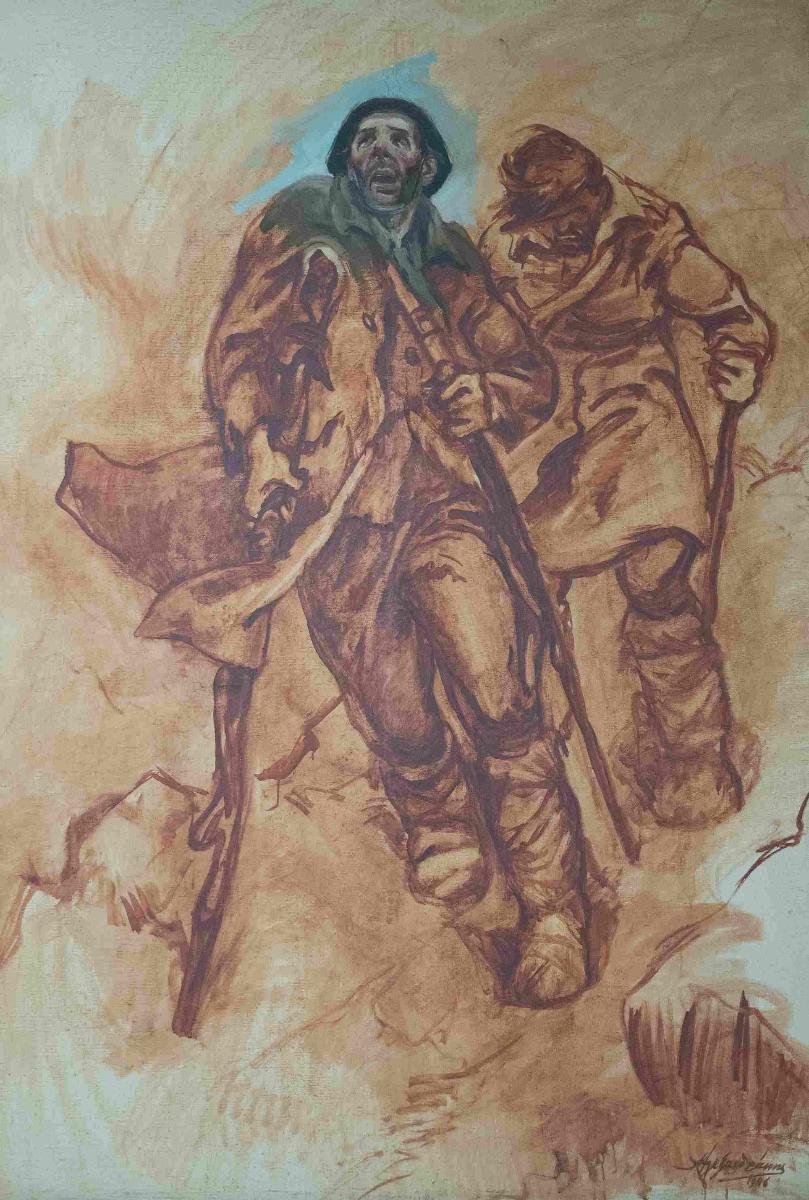Rijksmuseum – Licence: Public Domain Mark 1.0 Source: Europeana
i am
As I stand before you, I am a window into a bustling medieval scene, rich with life and emotion. My canvas captures a moment of interaction among townsfolk, revealing the essence of community and social dynamics. The figures, clad in garments of their time, embody various roles—merchants, townspeople, and perhaps a noble or two—each contributing to the vibrant tapestry of daily life. The woman at the forefront, with her basket, symbolizes generosity and the nurturing spirit of the community. Her gesture invites connection, suggesting themes of charity and the importance of sharing. The expressions on the faces around her range from curiosity to intrigue, reflecting the human experience of engagement and social bonds. In the background, the architecture speaks of prosperity and stability, while the distant figures hint at the complexities of social hierarchy. The cat, a subtle yet significant presence, may symbolize domesticity or the ever-watchful eye of the community, reminding us of the intertwined lives we lead. Emotionally, I evoke a sense of nostalgia for a time when community ties were strong, and every interaction held weight. Conceptually, I explore themes of social order, the balance of giving and receiving, and the intricate dance of human relationships. Through my imagery, I invite you to ponder the connections that define us, both in the past and the present.
palette
In my composition, a harmonious blend of earthy tones and muted colors predominates, creating a sense of realism and grounding the viewer in the scene. The warm browns and soft grays evoke a feeling of familiarity and comfort, while the occasional pops of red and green draw the eye, adding vibrancy and life to the narrative. This color palette influences the viewer’s mood, instilling a sense of community and interaction among the figures. The choice of colors also contributes to the perception of time and movement within the work. The subtle gradations and shading suggest depth and dimension, allowing the viewer to feel as though they are part of the unfolding story. The figures, adorned in richly colored garments, appear to engage in lively conversation, enhancing the dynamic quality of the scene. Certain colors carry specific emotional weight and cultural significance. For instance, the use of red can symbolize passion or urgency, while the presence of white may evoke purity or innocence. These associations deepen the interpretation of the work, inviting viewers to explore the underlying themes of social interaction and daily life in the depicted era. Ultimately, my color choices serve not only to enhance the visual appeal but also to enrich the narrative, encouraging a deeper connection between the viewer and the historical context I represent.
idea
Commerce
The scene depicts a marketplace, highlighting the importance of trade and economic activity in medieval society. The interactions among the figures suggest a vibrant community engaged in the exchange of goods.
idea
Social Hierarchy
The varied attire of the figures indicates different social classes, reflecting the structured social hierarchy of the time. This visual representation emphasizes the roles and relationships within the community.
idea
Daily Life
The painting captures a moment of everyday life, showcasing the routines and interactions of people in a historical context. It serves as a window into the customs and social dynamics of the period.
idea
Urban Landscape
The architectural details in the background reveal the urban environment of the time, illustrating the development of towns and cities. This aspect highlights the shift from rural to urban living during the medieval era.
Art History
The Role of Women in Medieval Society
This topic explores the various roles women played in medieval society, from domestic responsibilities to their participation in trade and community life, as depicted in artworks of the era.
Urban Development
Medieval Town Life
An examination of the social and economic structures of medieval towns, focusing on the interactions between different classes and the daily activities that shaped urban life.
Cultural Studies
Symbolism in Medieval Art
This theme delves into the use of symbolism in medieval art, analyzing how artists conveyed complex ideas and societal values through visual elements in their works.
History
Trade and Commerce in the Middle Ages
A study of the development of trade routes and commerce during the Middle Ages, highlighting how these factors influenced economic growth and urbanization in European towns.
Animal Studies
The Representation of Animals in Medieval Art
This topic investigates the significance of animals in medieval art, exploring their roles as symbols, companions, and elements of daily life as depicted in various artworks.
feeling
Curiosity
The scene depicts a bustling marketplace with various characters interacting, which can evoke a sense of curiosity about their stories and lives.
feeling
Community
The gathering of people in the image suggests a strong sense of community, highlighting social interactions and shared experiences among the townsfolk.
feeling
Nostalgia
The historical setting and attire can evoke nostalgia for a simpler time, prompting reflections on the past and how life was lived in earlier centuries.
feeling
Empathy
The expressions and gestures of the figures can elicit empathy, as viewers may relate to the emotions and situations depicted in the scene.
feeling
Intrigue
The various activities and interactions in the image create an atmosphere of intrigue, inviting viewers to ponder the relationships and dynamics at play.
relationship
Portrait of Johan van Someren (1622-76)
1650
Rijksmuseum
License: Public Domain Mark 1.0
Courtesy: Europeana
relationship
Olieskitse til Vandringen til Emmaus

National Gallery of Denmark
License: Public Domain Mark 1.0
Courtesy: Europeana
relationship
Self-portrait in Mytilene
Spyros Papaloukas 1925

Vasilis and Marina Theocharakis Foundation for Visual Arts & Music
License: CC BY-SA 4.0
Courtesy: Europeana
relationship
Oil painting (For Altars and Homes) 2*1.35 (framed).Work of A. Alexandrakis.
ALEXANDROS ALEXANDRAKIS

Athens War Museum
License: CC BY-SA 4.0
Courtesy: Europeana
relationship
Nežinomas vyras
Ona Römerienė

National Museum of Lithuania
License: Public Domain Mark 1.0
Courtesy: Europeana
Music
The Four Seasons: Spring by Antonio Vivaldi
This piece captures the essence of renewal and community, reflecting the lively interactions depicted in the image, where people engage in daily activities.
Music
Lullaby by Johannes Brahms
The gentle and soothing nature of this lullaby evokes a sense of care and domestic life, paralleling the nurturing aspects seen in the image.
Music
Symphony No. 9 ‘From the New World’ by Antonín Dvořák
This symphony embodies themes of exploration and cultural exchange, resonating with the diverse interactions among the figures in the artwork.
Music
The Marriage of Figaro by Wolfgang Amadeus Mozart
This opera features themes of social interaction and community dynamics, similar to the gathering of characters in the scene.
Music
Water Music by George Frideric Handel
This collection of orchestral suites celebrates social gatherings and festivities, paralleling the communal atmosphere depicted in the image.
Theatre
The Merchant of Venice by William Shakespeare
This play explores themes of commerce, social interaction, and the complexities of human relationships, much like the bustling marketplace depicted in the image. The interactions among different social classes and the presence of a community reflect the dynamics shown in the artwork.
Theatre
A Midsummer Night’s Dream by William Shakespeare
This play features various characters from different walks of life interacting in a communal setting, similar to the gathering seen in the image. The themes of love, mischief, and societal roles resonate with the social dynamics portrayed.
Theatre
The Alchemist by Ben Jonson
Set in a bustling urban environment, this play showcases the interactions among various characters seeking fortune and social mobility, paralleling the themes of commerce and community depicted in the artwork.
Theatre
The Importance of Being Earnest by Oscar Wilde
This comedy of manners highlights social interactions and the absurdities of societal expectations, akin to the social gathering in the image, where characters engage in various roles within their community.
Theatre
The Cherry Orchard by Anton Chekhov
This play deals with themes of social change and the impact of economic shifts on community and family, reflecting the societal dynamics and interactions seen in the image.
Cinema
The Name of the Rose (1986) – Jean-Jacques Annaud
Set in a medieval monastery, this film explores themes of knowledge, power, and superstition, reflecting the societal dynamics depicted in the artwork. The interactions among characters and the presence of a community resonate with the gathering of townsfolk in the image.
Cinema
The Seventh Seal (1957) – Ingmar Bergman
This iconic film delves into existential themes during the Black Death in medieval Europe, paralleling the social and moral questions raised in the artwork. The depiction of human struggles and community interactions mirrors the scene’s atmosphere.
Cinema
A Man for All Seasons (1966) – Fred Zinnemann
This historical drama about Thomas More’s conflict with King Henry VIII highlights the complexities of law, morality, and society, akin to the social interactions and moral dilemmas presented in the artwork.
Cinema
The Crucible (1996) – Nicholas Hytner
Based on the Salem witch trials, this film explores themes of hysteria, community, and the consequences of societal fear, paralleling the communal dynamics and tensions depicted in the artwork.
Cinema
The Witch (2015) – Robert Eggers
Set in 1630s New England, this horror film examines themes of isolation, community, and superstition, reflecting the societal fears and interactions seen in the artwork’s depiction of a medieval town.




